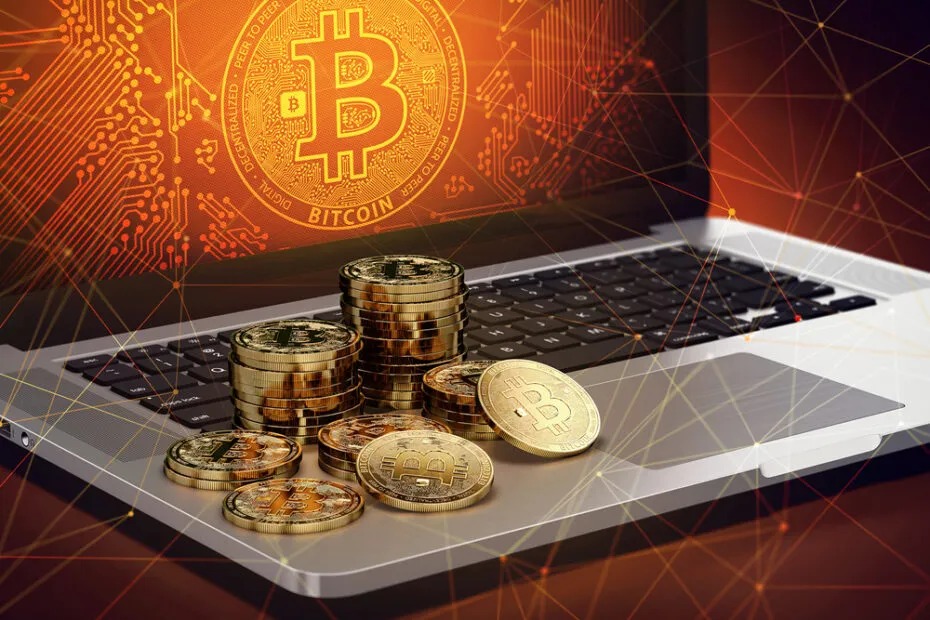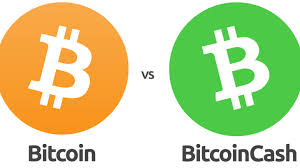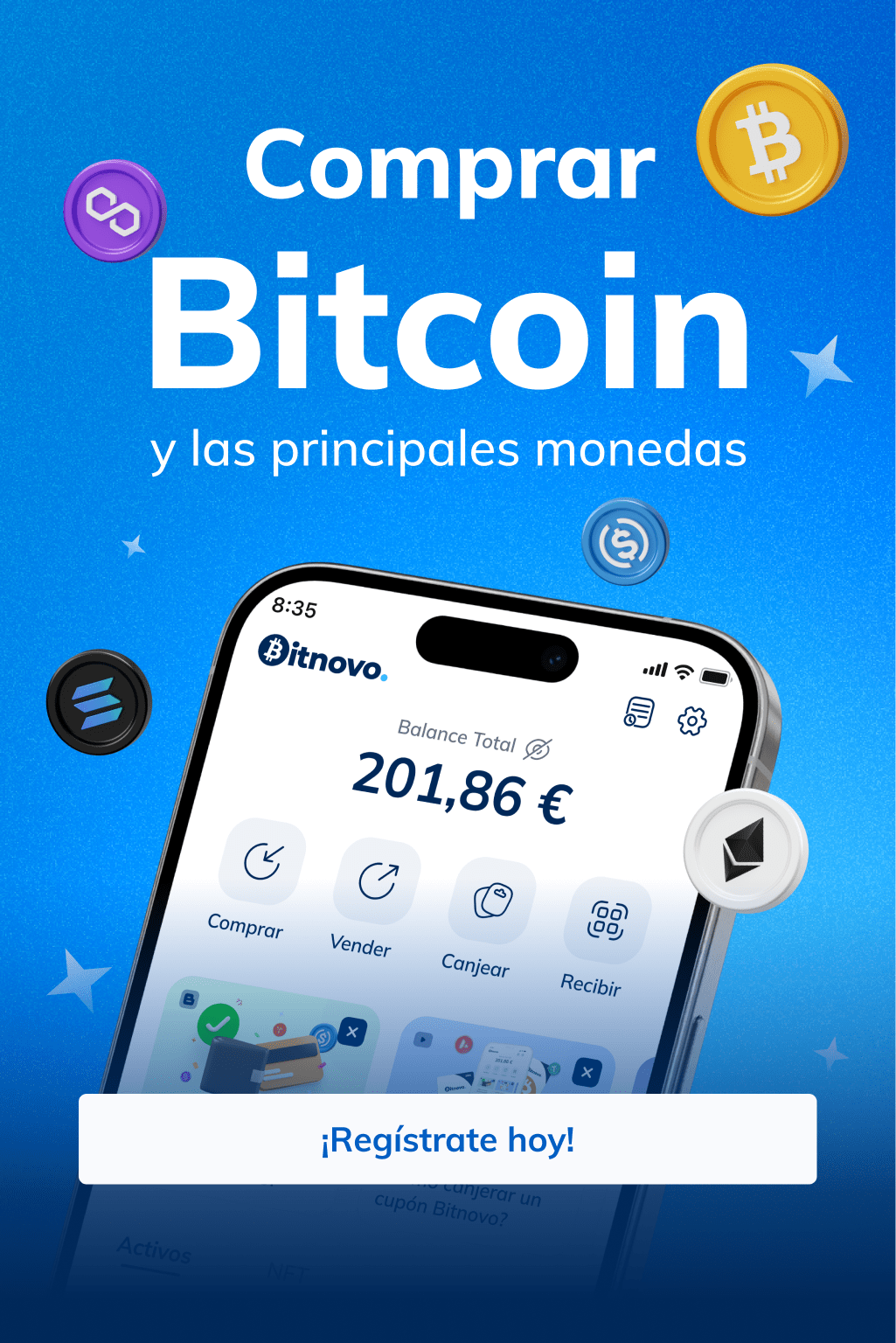Bitcoin Cash vs. Bitcoin: Why are there two cryptos with the same name?
Last updated:

Table of Contents
ToggleIn the fascinating world of cryptocurrencies, a recurring question often arises: why do two assets with such similar names, Bitcoin (BTC) and Bitcoin Cash (BCH), exist? What might seem like a simple typo is actually the result of one of the most significant splits in cryptocurrency history, known as a «hard fork».

Below, the origin of this split will be unraveled, its fundamental differences will be understood, how a hard fork works will be explained, and, most importantly, which of these two digital coins might be the best option for each user will be analyzed.
What is Bitcoin Cash and why was it born?
Bitcoin Cash (BCH) is a cryptocurrency that aims to offer an alternative to the world’s oldest and most traded cryptocurrency, Bitcoin (BTC).
Launched in August 2017, Bitcoin Cash was born from a fundamental disagreement in the Bitcoin community. A group of users and developers, at odds with the roadmap proposed by the core Bitcoin Core team, believed significant technical changes were necessary for Bitcoin to scale globally and compete with traditional payment systems like Visa or PayPal.
IMAGE: Bitcoin Cash
Essentially, Bitcoin Cash advocates sought greater transaction capacity and reduced fees for users, with the idea of shifting those costs to other elements of the network.
To achieve these goals, Bitcoin Cash modified Bitcoin’s code, resulting in a fork (hard fork) that split the Bitcoin blockchain into two separate chains: Bitcoin (BTC) and Bitcoin Cash (BCH). This split meant that, at the time of launch, any user holding BTC could claim an equivalent balance in BCH, giving rise to two distinct assets and networks.
What is a hard fork and why does it happen?
A hard fork is the only method currently known for developers to update Bitcoin’s software. Developers split the network and essentially create a new blockchain with modified rules.
The original version and the forked version of the cryptocurrency have identical blockchains up to the block where the split occurred. From there, the two networks exist independently.
Hard fork vs soft fork
In the crypto world, a «fork» is an update or change to a blockchain’s protocol. There are two main types:
• A soft fork. It is a backward-compatible protocol rule update that does not create two independent chains. It allows a smooth transition, as all network nodes can continue validating transactions and blocks, maintaining consensus even if some participants choose not to update their software.
IMAGE: Hard fork vs soft fork
• A hard fork. It is a significant and irreversible divergence in the blockchain’s protocol rules, resulting in two independent and incompatible chains. It typically occurs when a substantial change is made to the blockchain’s code, often leading to the creation of a new cryptocurrency and a new community.
The Bitcoin case: One network, two visions
Specifically, the case of Bitcoin and Bitcoin Cash exemplifies how a hard fork can split a network into two distinct visions. In 2017, the Bitcoin community split over scalability: while BTC prioritized security and decentralization with small blocks, BCH advocated for larger blocks for faster, cheaper daily transactions.
This divergence resulted in two separate cryptocurrencies and blockchains: BTC as a store of value and BCH focused on transaction speed.
What happens to coins when a hard fork occurs?
After a hard fork, the old and new versions are completely split; there is no option for communication or transactions between them. Typically, the new version inherits all historical transactions, and from that point on, each version will have its own transaction history.
Key differences between Bitcoin and Bitcoin Cash
Bitcoin and Bitcoin Cash differ primarily in their overall design philosophy approach.

Block Ssize and transaction speed
Notably, Bitcoin Cash’s standout feature is that its blockchain blocks can be larger, allowing it to process more transactions each time a block is added.
This extra space saves users the fees applied in Bitcoin to prioritize transactions during high demand.
Fees and scalability
Due to its greater processing capacity, Bitcoin Cash generally features lower transaction fees than Bitcoin.
Acceptance, community, and active development
Bitcoin Cash focuses on person-to-person payment system use, seeking greater adoption and utility as a digital currency.
Bitcoin Cash developers believe customer payments are more important for growing BCH’s short-term value. For this reason, users may consider it the more suitable currency for online purchases.
Focus as Store of Value vs Payment Medium
Bitcoin Cash advocates believe that by focusing on offering cheaper transactions, consumers will begin choosing BCH for online transactions, increasing its value.
Bitcoin Cash also retains some aspects of Bitcoin, including its scarcity. This includes the rule that only 21 million BCH can be created, and the number of new BCH tokens introduced into the network is programmed to decrease over time in a phenomenon known as «halving».
In summary, Bitcoin Cash presents itself as a Bitcoin alternative seeking to be faster, cheaper, and more scalable for use as a payment medium.
Which is better? It depends on the use case
It’s important to remember that Bitcoin is and always will be the original currency, besides being the most adopted globally. Determining which cryptocurrency is better than the other is complex, as the answer depends on each user’s perspective.
However, broadly speaking, it can be stated that Bitcoin (BTC) remains the most dominant and reliable cryptocurrency as “digital gold.” It has also proven its ability to endure over time. Bitcoin Cash (BCH), while cheaper and offering fast transactions, ranks 12th on the list of most-used cryptocurrencies.
Fees for sending Bitcoin Cash are typically less than one cent per transaction, and settlement occurs almost instantly, regardless of participants’ physical locations. This makes Bitcoin Cash useful not only for remittances and cross-border trade but also for daily transactions like buying groceries.
Quick Comparison BTC vs. BCH
Since the fork in 2017, the multiple independent developer teams working on the Bitcoin Cash protocol have introduced innovations aimed at improving Bitcoin Cash’s usability as a peer-to-peer electronic cash system supporting economic freedom. These innovations, distinguishing Bitcoin Cash from Bitcoin, are summarized below:
| Feature | Bitcoin (BTC) | Bitcoin Cash (BCH) |
| Max block size | 1 MB | 32 MB (a larger size increasing the volume of transactions the Bitcoin Cash network can process on-chain). |
| Speed | 3-7 transactions per second | Up to 200 transactions per second. |
| Fees | Average $0.75 per transaction. | Generally less than one cent per transaction. |
| Algorithm | Original hash algorithm. | Hash algorithm different from Bitcoin’s, making replay between the two chains impossible. |
| Adoption & growth | Dominant, prioritizes security and decentralization. | Some acceptance, seeks greater speed and scalability for daily transactions but hasn’t reached BTC’s level of backing. |
Governance: Who Decides the Future of Each Network?
Governance in blockchain networks like Bitcoin and Bitcoin Cash is a decentralized process. Truly, these networks evolve according to the broad consensus of their participants.

There is a wide range of voices, including developers, miners, exchanges, wallet providers, custodians, full node operators, and end users.
Notably, Bitcoin’s governance prioritizes security and censorship resistance. While Bitcoin Cash’s is focused on development speed and on-chain scalability.
Now, in both cases, consensus among developers, miners, and node operators is vital for the network’s evolution, as a lack of agreement can lead to splits (forks) and the creation of new cryptocurrencies.
How to Buy and Use Bitcoin Cash (BCH)?
To buy Bitcoin Cash (BCH), you must use a crypto exchange. Once purchased, it can be stored in a BCH-compatible cryptocurrency wallet. To use it, you simply need to transfer funds to the recipient’s BCH address.
- Choose an exchange. Research and select a reliable exchange that offers Bitcoin Cash and convenient payment methods.
- Create an account. Register on your chosen exchange and verify your identity if required.
- Deposit funds. Transfer funds to your exchange account using available payment methods.
- Buy BCH. Find Bitcoin Cash on the platform and purchase it using deposited funds.
- Store BCH. Transfer BCH to a secure cryptocurrency wallet.
How to Use Bitcoin Cash (BCH)?
- Obtain a BCH address. You need the recipient’s wallet public address to send funds.
- Initiate a transaction. In your wallet, select the option to send BCH.
- Enter the BCH address. Paste the recipient’s address in the corresponding field.
- Specify the amount. Enter the amount of BCH you wish to send.
- Confirm the transaction. Review details and confirm the transaction.
BCH-Compatible Wallets
Before you can start trading or mining Bitcoin Cash, you need a place to store it, e.g., a wallet. Options include:
• Hardware wallets. The most secure for storing large amounts of BCH, as they keep private keys offline: Ledger or Trezor.
• Software wallets. Apps installed on your computer or mobile device. Offer a good balance of security and convenience: Exodus.
Where to Buy Bitcoin Cash on Bitnovo?
Bitnovo offers four ways to buy Bitcoin Cash instantly, allowing users to choose what best suits their needs to acquire BCH securely, quickly, and easily.
- Buy Bitcoin Cash with Apple Pay and Google Pay. Buy Bitcoin Cash in seconds from your mobile. With Apple Pay or Google Pay, just one tap to pay securely.
- Buy Bitcoin Cash with bank transfer. Purchase Bitcoin Cash via traditional bank transfer quickly and securely.
- Buy Bitcoin Cash using vouchers. Acquire Bitnovo vouchers at over 40,000 physical pointsin Europe and redeem them for Bitcoin Cash via the App.
- Buy Bitcoin Cash with instant SEPA transfer. Receive BCH instantly with SEPA transfers. A fast, secure option for those looking to transact directly from their bank account.
Why Bitnovo?
• Cryptocurrency custody. Offers a secure, convenient way to have full control of funds and protect cryptocurrencies.
• Secure and reliable. All transactions are protected with IT security.
• Best price. With the same money, you receive more BCH, indicating they offer the best market rate.
• Fast. Access the platform from mobile or computer to acquire cryptos.
Current Uses and Merchants That Accept It
Bitcoin Cash is used for payments both online and in physical stores, with growing acceptance by merchants and payment platforms. It’s used for daily purchases, international transactions, and by companies like PayPal, AT&T, and Microsoft. It can also be used for:
• Merchant payments. Including restaurants and service providers.
• Online shopping.
• Transfers. Fast, low-cost transactions.
• Remittances.
• Recurring payments. For subscriptions or ongoing services.
Though dialogue on these topics remains open, Andreas M. Antonopoulos states:
«The future of a decentralized network is not dictated, it is negotiated. Every fork is a technical referendum, and every community, a shared vision seeking its own path»




